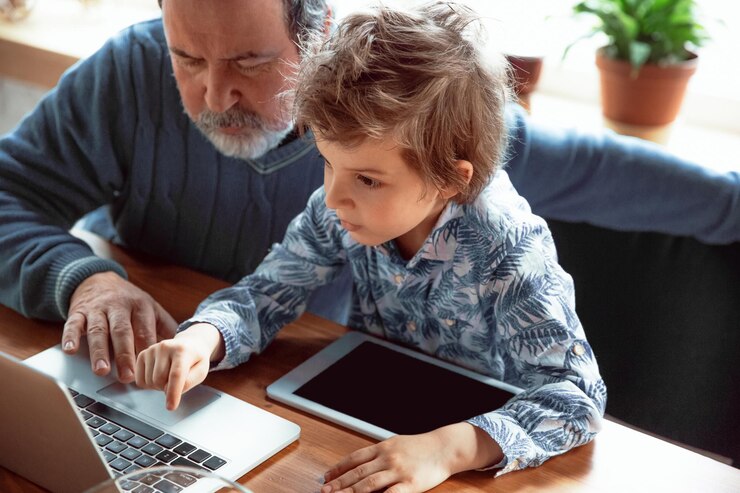In today’s digital age, screens are ubiquitous, with smartphones, tablets, computers, and televisions becoming an integral part of our daily lives. While technology offers numerous benefits, excessive screen time, especially for children, can have detrimental effects on their physical and mental well-being. As such, it is essential to understand and follow screen time recommendations by age to promote healthy development and balanced use of technology.
Infants and Toddlers (0-2 years)
For infants and toddlers aged 0-2 years, the American Academy of Pediatrics (AAP) recommends avoiding screen time, except for video chatting. This is because infants and toddlers learn best through real-world interactions and hands-on experiences. Excessive screen time during this critical developmental stage can hinder social, emotional, and cognitive development.
Parents are encouraged to engage in activities that promote bonding and stimulate the child’s senses, such as reading books, playing with toys, and engaging in interactive play. Limiting screen time can also help establish healthy habits early on and reduce the risk of screen-related issues later in life.
Preschoolers (3-5 years)
For preschoolers aged 3-5 years, the AAP recommends limiting screen time to no more than one hour per day of high-quality programming. It is crucial to prioritize interactive and educational content that promotes learning and creativity. Parents should co-view programs with their children to enhance understanding and facilitate discussions about what they are watching.
In addition to screen time, preschoolers should engage in a variety of activities, such as outdoor play, arts and crafts, and imaginative play, to support overall development. Setting limits and establishing screen-free zones, such as during meals and before bedtime, can help create a healthy balance between screen time and other activities.
School-Age Children (6-12 years)
For school-age children aged 6-12 years, the AAP recommends consistent limits on screen time and establishing a daily screen time routine. Children in this age group can benefit from educational content, interactive games, and creative apps that enhance learning and critical thinking skills.
Parents should encourage a balance between screen time and physical activity, such as sports, outdoor play, and hobbies. Setting screen time rules, such as no screens during homework or family time, can help children develop self-regulation skills and reduce the risk of excessive screen use.
Teenagers (13-18 years)
For teenagers aged 13-18 years, it is essential to promote responsible and mindful use of screens. While teenagers may require access to screens for schoolwork, socializing, and entertainment, it is crucial to set limits and boundaries to prevent excessive use.
Parents can encourage teenagers to take breaks, practice digital wellness, and engage in offline activities, such as reading, sports, and hobbies. Open communication about screen time expectations, online safety, and the importance of sleep hygiene can help teenagers develop healthy screen habits and prioritize their well-being.
General Tips for Managing Screen Time
Regardless of age, there are several tips and strategies that can help parents and individuals manage screen time effectively:
- Set Screen Time Limits: Establish clear rules and boundaries around screen time, including specific time limits and designated screen-free periods.
- Prioritize Quality Over Quantity: Focus on high-quality, educational, and age-appropriate content that promotes learning and engagement.
- Lead by Example: Model healthy screen habits by limiting your own screen time and engaging in offline activities with your family.
- Create Screen-Free Zones: Designate certain areas of the home, such as the dining room or bedrooms, as screen-free zones to promote face-to-face interactions.
- Encourage Physical Activity: Balance screen time with physical activity, outdoor play, and hobbies to support overall health and well-being.
By following age-appropriate screen time recommendations and implementing effective management strategies, individuals can cultivate healthy relationships with screens and promote a balanced lifestyle that prioritizes well-being and meaningful experiences. Remember, technology is a tool to enhance our lives, not dictate them. Let’s strive for a harmonious balance between the digital world and the real world for optimal health and happiness.


